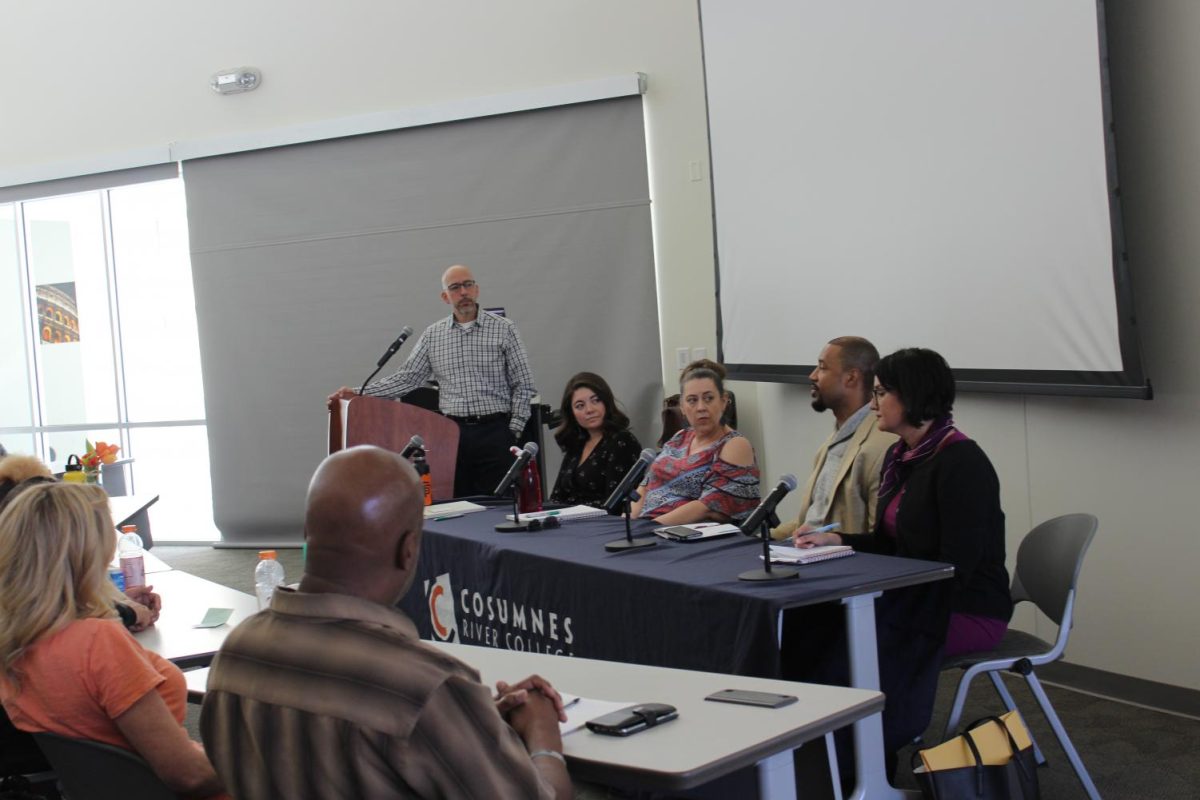OneBook event discusses obstacles faced by incarcerated students
Professor Alex Peshkoff kicked off the event by introducing the panel of speakers. The speakers discussed the issues that formerly incarcerated students face. The event took place on Wednesday in Winn 150.
Students gathered together to learn about incarcerated students and the impact of mass incarceration for the OneBook: Just Mercy event held in Winn 150 on Mar. 4.
The event, officially titled “The Power of Education: Why Faculty Want to Teach in Prisons” started with Professor Alex Peshkoff introducing the speakers for the event, Professors Christina Washington, Al foreman, Kalinda Jones and Doctor Mari Peshon. Each of the speakers shared their backgrounds, both professional and personal, regarding incarceration.
“I’m interested in this student population particularly because of my family,“ said Washington. “I was taking the time to self reflect and if taking a look at the men in my family, there are more who are incarcerated than those who have even graduated from highschool.”
Following these introductions, Peshkoff spoke about how historically certain communities have been impacted by mass incarceration more than others. To emphasize this point, a short film titled “Our Turn to Dream” was shown to the audience.
The film highlighted how minority communities were disproportionately affected by criminal policy. Those who are released from incarceration also faced many obstacles on the outside world, according to the film.
“It’s just too much,” said 18-year-old business administration major Hannah Orth. “Life shouldn’t have to be that hard and that many people shouldn’t be incarcerated.”
Following the film the speakers continued to talk about the issues formerly incarcerated students faced. One of the points spoken about was how a lack of opportunities, both before and after incarceration, negatively impacted these individuals.
“Last semester teaching again at Rios Cosumnes Correctional Facility I worked with the women’s population,” said Foreman. “What struck me about this class was everyone was sharp.”
The class lacked the majority of resources available to students in a traditional classroom, said Foreman. Despite this, they were still able to learn and apply what was taught, leading to him reevaluating how he taught the course, said Foreman.
He also shared how one of the students delayed their release by two weeks in order to finish the course. The decision was a tough one to make, but the student wanted to set a good example both for their fellow inmates and for themselves, said Foreman.
Over 50 students were in attendance for the event. Salina Sykes, a 42-year-old human services and social works major, who learned of the event through Peshkoff’s history 351 class.
“Everyone deserves a second chance,” said Sykes. “If they can’t get that chance though, how can you expect them to get better.”
The next OneBook event will be taking place on Mar. 19 from 12 p.m. to 1.20 p.m. in Winn 150. The event will be for the Re-Emerging Scholars Program, and will be facilitated by Professor Georgine Hodgkinson.

